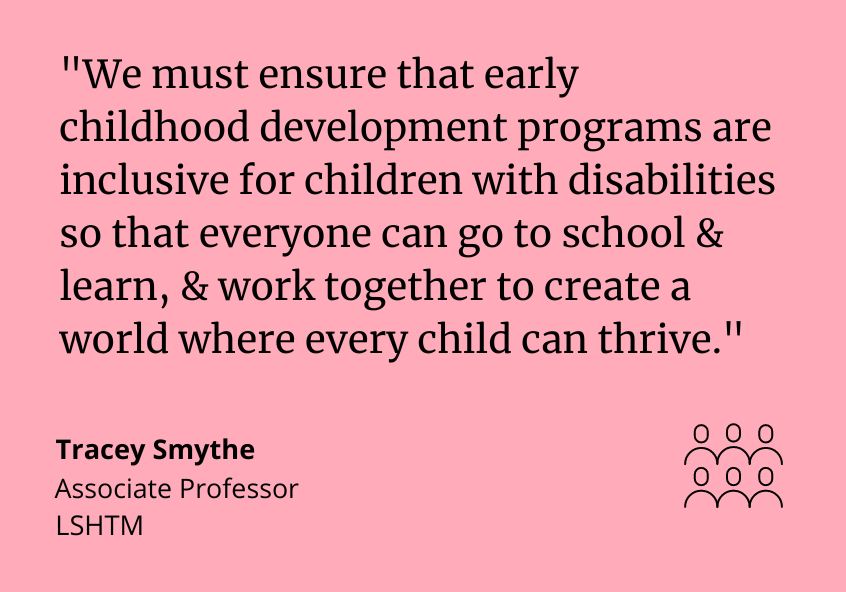Unlocking opportunities for children with disabilities: a roadmap for inclusive communities
London School of Hygiene & Tropical Medicine https://lshtm.ac.uk/themes/custom/lshtm/images/lshtm-logo-black.png Tuesday 25 April 2023
Children with disabilities, especially in low-and middle-income countries, face challenges in getting a good education and having opportunities to grow. Even though the United Nations has set goals for inclusive education for all, progress has been slow and planning often doesn't take into account the unique needs of children with disabilities and their families.
Children with disabilities are often treated unfairly and don't get the same education as other kids, no matter if they're boys or girls, rich or poor, or where they live. We cannot have inclusive education without thinking about what children with disabilities need, and addressing current funding patterns that are inequitable and insufficient.
It is also important to start helping children with disabilities when they are very young, so that they can be part of their communities when they grow up. Organisations such as the World Health Organization and UNICEF play critical roles in promoting health equity for persons with disabilities through policy documents, resource mobilisation, and capacity-building in low- and middle-income countries. However, there are still barriers to overcome, including lack of awareness, stigma, and affordability. Collaboration with other organisations, communities, and families of children with disabilities is also essential.
It is estimated that around 53 million children under 5 years old around the world have developmental disabilities, so it is crucial to address this issue urgently. Our recent article in Nature Medicine calls on organisations like UNICEF and other international organisations to prioritise the education and development of children with disabilities. This requires increased funding, effective governance, monitoring, and accountability mechanisms to ensure that children with disabilities can have the same chances as other kids to access early childhood development and quality education.
We also need a way to check if we are making progress in inclusive early childhood development, with clear goals and ways to measure how we are doing. Effective and accountable leadership is crucial for fulfilling commitments to children with disabilities. We need to prioritise, invest, and empower children with disabilities to achieve their dreams and contribute to a brighter future for everyone. By taking these steps, we can unlock the full potential of children with disabilities and promote a more inclusive and equitable world for all children.
Inclusion is not about merely adding people with disabilities to existing programs, but transforming systems to be inclusive of everyone. The UNICEF Disability Inclusion Policy and Strategy 2022 to 2030 is an important commitment for global health, welcomed by the Global Research on Developmental Disabilities Collaborators (GRDDC), a diverse group of professionals, carers, and parents with and without disabilities. We must ensure that early childhood development programs are inclusive for children with disabilities so that everyone can go to school and learn, and work together to create a world where every child can thrive.
LSHTM's short courses provide opportunities to study specialised topics across a broad range of public and global health fields. From AMR to vaccines, travel medicine to clinical trials, and modelling to malaria, refresh your skills and join one of our short courses today.